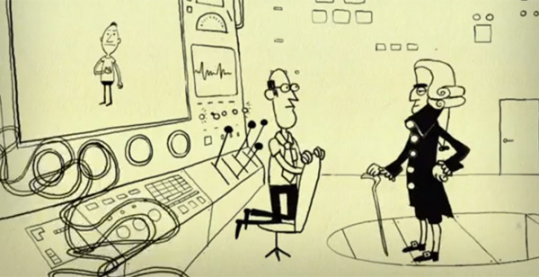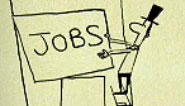Find out about The Open University's Economics courses.
Transcript: Whether you think economies work best if they're left alone or that governments need to do something to get them working, the one thing that can’t be controlled is the rest of the world.
Fear of foreign competition once led countries to try and produce everything they needed, and impose heavy taxes to keep out foreign goods.
However, economist David Ricardo showed that international trade could actually make everyone better off, bringing in one of the first great economic models.
He pointed out that, even if a country can produce pretty much everything at the lowest possible cost, with what economists call an ‘absolute advantage, it's still better to focus on the products it can make most efficiently – that sacrifice the least amount of other goods - and let the rest of the world do the same.
By specialising, they can then export these surpluses to each other and both end up better off.
This is the principle of comparative advantage – and it has persuaded many countries to sign up to free-trade agreements, but unfortunately, it can take a long time for countries to trade their way to prosperity.
And because it‘s now much easier to move to where the money is – it’s increasingly not only goods that cross borders, but people - which has somewhat uprooted Ricardo’s theory.
Got another 60 seconds?
-

60 second adventures in economics: The Invisible Hand
Watch now to access more details of 60 second adventures in economics: The Invisible HandIn the first of our six short videos on economic theory, watch how an Invisible Hand drives the economy. Eventually.
Video
Level: 1 Introductory
-

60 second adventures in economics: The Paradox Of Thrift
Watch now to access more details of 60 second adventures in economics: The Paradox Of ThriftIs it better to save or to spend? According to Keynes, if you don't spend, you're going to make the economy even worse. This animations explains more in just one-minute.
Video
Level: 1 Introductory
-

60 second adventures in economics: The Phillips Curve
Watch now to access more details of 60 second adventures in economics: The Phillips CurveBob Phillips took some time out of crocodile hunting to have a stab at explaining how wages, prices and unemployment interplay.
Video
Level: 1 Introductory
-

60 second adventures in economics: The Impossible Trinity
Watch now to access more details of 60 second adventures in economics: The Impossible TrinityNations want it all - currency flows, low interest rates and stable exchange rates. Dream on, nations, you've got to choose.
Video
Level: 1 Introductory
-

60 second adventures in economics: Rational Choice Theory
Watch now to access more details of 60 second adventures in economics: Rational Choice TheoryPeople are pretty rational. But not quite rational enough for the good of the economy.
Video
Level: 1 Introductory
Got more than 60 seconds? Try these FREE courses...
-

Economics and the 2008 crisis: a Keynesian view
Learn more to access more details of Economics and the 2008 crisis: a Keynesian viewThis free course, Economics and the 2008 crisis: a Keynesian view, looks at how Keynes's theories revolutionised thinking about the causes of crises and unemployment. Keynes's thinking on how to reduce these problems was very influential with economists and policy makers for several decades following the 1930s. The economic downturn that started...
Free course
28 hours
Level: 2 Intermediate
-

Economics explains discrimination in the labour market
Learn more to access more details of Economics explains discrimination in the labour marketDiscrimination in the labour market exists in many forms: the 'glass ceiling', ageism, racism, and so on. This free course, Economics explains discrimination in the labour market, will help you look at this problem from a new perspective: through economics. You will learn how economists have tried to understand what drives this distortion of the...
Free course
8 hours
Level: 3 Advanced
-

Rent or buy? The challenge of access to housing
Learn more to access more details of Rent or buy? The challenge of access to housingEveryone needs a place they call home and housing costs are usually your largest outgoing. Many aspire to buy, but rising house prices, while good news for existing owners, put homeownership beyond the reach of others. This free course, Rent or buy? The challenge of access to housing, addresses some of the most important decisions that ...
Free course
8 hours
Level: 1 Introductory
Rate and Review
Rate this video
Review this video
Log into OpenLearn to leave reviews and join in the conversation.
Video reviews